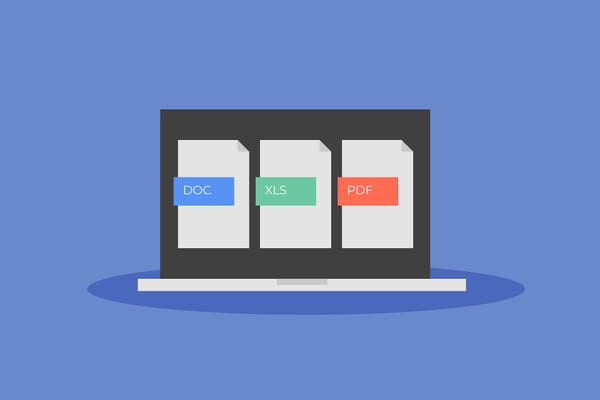Payroll Fraud in Small Businesses: Warning Signs and Prevention Tips

Payroll fraud is a serious threat to small businesses, with losses estimated at $7 billion annually, according to the Association of Certified Fraud Examiners (ACFE). Even more concerning is that small and medium-sized enterprises (SMEs) are more vulnerable to these scams than larger organizations. Limited resources and weaker internal controls often make SMEs easy targets for fraudsters.
In fact, the ACFE reports that businesses with fewer than 100 employees are the most common victims of fraud, with nearly one in three experiencing some form of it.
What Is Payroll Fraud?
Payroll fraud happens when someone manipulates a company's payroll system to steal money. This could involve dishonest employees, contractors, or even external cybercriminals targeting your processes.
Sometimes, payroll fraud is as straightforward as an employee padding their hours on a timesheet, which can go unnoticed for months. In other cases, it can involve more sophisticated schemes, like payroll tax fraud or a payroll diversion resulting from a Business Email Compromise. Regardless of the method, the impact can be significant—draining your resources, lowering employee morale, and even damaging your company's reputation.
Insights from Bitdefender
- Global Patterns: Payroll fraud is more common in SMEs that rely on manual payroll systems, where oversight is limited.
- APAC Region: Family-run businesses with informal management structures are particularly vulnerable due to reduced oversight.
- Australia: Industries like hospitality and retail, which experience high staff turnover, are frequent targets for fraudsters.
Real-Life Example: In the United States, a manager at a small business created ghost employees over the course of ten years, stealing $1 million before being caught.
Types of Payroll Scams
1. Ghost Employee Scams
Ghost employee scams involve paying salaries to "employees" who don't actually exist. This fraud can occur in two main ways: someone either creates completely fake employees in the payroll system or continues to issue paychecks for former employees who no longer work for the company.
Red Flags to Watch For:
- Multiple employees sharing the same bank account or address
- Employee records missing key documentation, like ID or tax forms
- Paychecks that go unclaimed or direct deposits sent to unfamiliar accounts
- Social Security numbers that don't match employee names
- Employees on payroll without any benefits deductions
2. Timesheet Fraud
Time theft occurs when employees lie about their work hours to receive pay for time they didn't actually work. This type of payroll fraud can take several forms, including:
- Timesheet manipulation: Employees falsify their start and end times.
- Buddy punching: A coworker clocks in or out on behalf of an absent employee.
- Break time manipulation: Employees misreport the length of their breaks.
- Remote work time fraud: Employees log hours while not actually working.
Time theft often starts with small adjustments that may seem harmless but can add up over time, making it especially hard to detect without thorough oversight.
Red Flags to Watch For:
- Overtime hours that don't match your business's activity levels
- Employees with identical clock-in and clock-out times
- Time entries that conflict with security footage or door access logs
- Breaks logged during peak hours when employees should be working
- Consistently perfect 40-hour workweeks with no variation over time
3. Commission Fraud
Commission fraud happens when employees manipulate sales data, customer accounts, or transaction records to inflate their earnings through unearned commissions or bonuses. This type of payroll fraud is particularly damaging to retail and sales-driven businesses, as it can skew financial records and even create payroll tax discrepancies.
Fraudulent activities often involve creating fake sales, inflating numbers, or processing unauthorized adjustments to boost commissions.
Red Flags to Watch For:
- Commission earnings that don't align with historical patterns or business trends
- Sudden spikes in individual sales numbers without a clear explanation
- A high volume of voided or adjusted transactions in the sales system
- Customer complaints about accounts they didn't authorize
- Sales recorded outside of normal business hours
Related: What Are Invoice Scams and How Small Business Can Stay Safe
4. Payroll Diversion
Payroll diversion occurs when cybercriminals manipulate payroll systems to reroute employee paychecks into fraudulent accounts. This type of fraud often starts with a Business Email Compromise (BEC) attack, where criminals impersonate employees or payroll managers through phishing emails. By tricking someone into changing direct deposit information, they ensure the paycheck ends up in their account rather than the intended recipient's.
Red Flags to Watch For:
- Requests to change direct deposit information that come via email, especially urgent or unusual ones
- Emails that look slightly different from legitimate employee addresses (e.g., small spelling errors)
- Direct deposit changes not verified through a secure process or in-person
- Complaints from employees about missing paychecks
- Unfamiliar bank account details appearing in payroll records
Related:
- Train Your Team to Recognize and Stop BEC Scams
- How to Prevent or Recover from A Business Email Compromise (BEC) Attack.
5. Payroll Processing Manipulation
Payroll processing manipulation is one of the most challenging types of payroll fraud to detect because it's carried out by the very employees trusted to manage payroll. These employees have access to the payroll system and use their insider knowledge to secretly adjust pay rates, hours worked, or other data for their own benefit. Because they know the system so well, they often know how to cover their tracks effectively.
Red Flags to Watch For:
- Unusual adjustments to the payroll processor's own records
- Changes to pay rates or hours worked without supporting documentation
- Payroll totals that regularly exceed forecasted amounts
- Adjustments made outside of normal payroll processing times
- Missing approval documentation for changes to payroll data
How Payroll Fraud Can Hurt Your Small Business
Payroll fraud can do far more damage to a small business than just draining your finances. Its effects ripple through every part of your operations, leaving long-lasting impacts that are often difficult to repair.
The cost of payroll fraud is a sum of the following:
- Financial Losses: It often starts small—a few extra hours on a timesheet or an unauthorized adjustment—but those seemingly minor losses can quickly add up. Over time, they eat into your profits and derail your plans for growth before you even realize what's happening.
- Broken Trust and Damaged Morale: Discovering payroll fraud can shatter team trust and morale. When employees learn about fraud, it can cause frustration, lower productivity, and even lead to valued team members leaving your company.
- Legal Troubles and Expensive Penalties: Payroll fraud can bring serious legal consequences. The IRS treats payroll fraud as a felony, and penalties can include paying up to 100% of unpaid taxes, plus fines for any fraudulent tax returns. Add the cost of hiring legal help to navigate audits and investigations and the financial strain multiplies.
- Loss of Time and Peace of Mind: Investigating payroll fraud takes time—time that could be spent growing your business. You'll find yourself sifting through records, interviewing employees, and implementing new systems, all while trying to regain your confidence in your team.
- The Emotional Toll. For small business owners, payroll fraud often feels personal. In a small business where everyone knows each other, fraud feels like a deep betrayal. The emotional weight of discovering that someone close to you has abused your trust can hurt just as much as the financial damage—and sometimes, even more.
How to Protect Your Business from Payroll Fraud
Here's how to get started preventing payroll fraud:
- Divide payroll responsibilities so no single person has complete control over the process. For instance, one employee can process payroll while another reviews and approves it. This simple step can significantly reduce the risk of internal fraud.
- Schedule routine payroll audits to catch discrepancies early and ensure your payroll system complies with company policies. Regular reviews can help spot unusual patterns before they cause significant damage.
- Keep employee records up-to-date and accurate. Review them periodically to check for duplicate entries, shared bank accounts, or other suspicious details.
- Invest in payroll software with built-in security features, such as fraud detection and real-time alerts. Many modern systems flag unusual activity, like duplicate payments or unauthorized changes, making it easier to prevent fraud.
- Train your employees on payroll policies, fraud prevention practices, and how to spot warning signs. Foster a culture where reporting suspicious activity is encouraged and employees feel safe coming forward.
- Always verify direct deposit changes through a secure process, like in-person confirmation or multi-factor authentication. This adds an extra layer of security to prevent payroll diversion schemes.
- Protect your payroll system from external threats like phishing or malware attacks by using a comprehensive cybersecurity suite, such as Bitdefender Ultimate Small Business Security. Cybercriminals are always looking for ways to infiltrate small businesses—especially through Business Email Compromise (BEC) attacks, phishing scams, and malware.
With Bitdefender Ultimate Small Business Security, you get an all-in-one solution designed to defend your business against cyber threats from every angle, ensuring that external attackers never get the chance to exploit your vulnerabilities.
Check out the plans here.
FAQs
1. How does Business Email Compromise (BEC) lead to payroll fraud?
Business Email Compromise (BEC) scams trick payroll managers or employees into updating direct deposit details and sending paychecks straight to fraudsters. These attacks often come in the form of phishing emails disguised as urgent requests from executives or employees. Using Bitdefender Ultimate Small Business Security, businesses can block phishing emails before they reach inboxes, reducing the risk of BEC-related payroll fraud.
2. What are the first steps to take if you suspect payroll fraud?
If you suspect payroll fraud, review payroll records for discrepancies, check employee information for duplicate accounts, and conduct an internal audit. Implement immediate security measures, such as requiring multi-factor authentication (MFA) for payroll access and reviewing direct deposit changes in person.
3. Can cybersecurity tools prevent internal payroll fraud?
While cybersecurity solutions like Bitdefender Ultimate Small Business Security protect against external threats—such as phishing, malware, and data breaches—internal payroll fraud requires additional safeguards. Implementing internal controls, such as requiring dual approval for payroll changes and scheduling regular audits, can help prevent fraud from within your business.
tags
Author
Cristina is a freelance writer and a mother of two living in Denmark. Her 15 years experience in communication includes developing content for tv, online, mobile apps, and a chatbot.
View all postsRight now Top posts
How to Protect Your WhatsApp from Hackers and Scammers – 8 Key Settings and Best Practices
April 03, 2025
Outpacing Cyberthreats: Bitdefender Together with Scuderia Ferrari HP in 2025
March 12, 2025
Streamjacking Scams On YouTube Leverage CS2 Pro Player Championships to Defraud Gamers
February 20, 2025
How to Identify and Protect Yourself from Gaming Laptop Scams
February 11, 2025
FOLLOW US ON SOCIAL MEDIA
You might also like
Bookmarks







